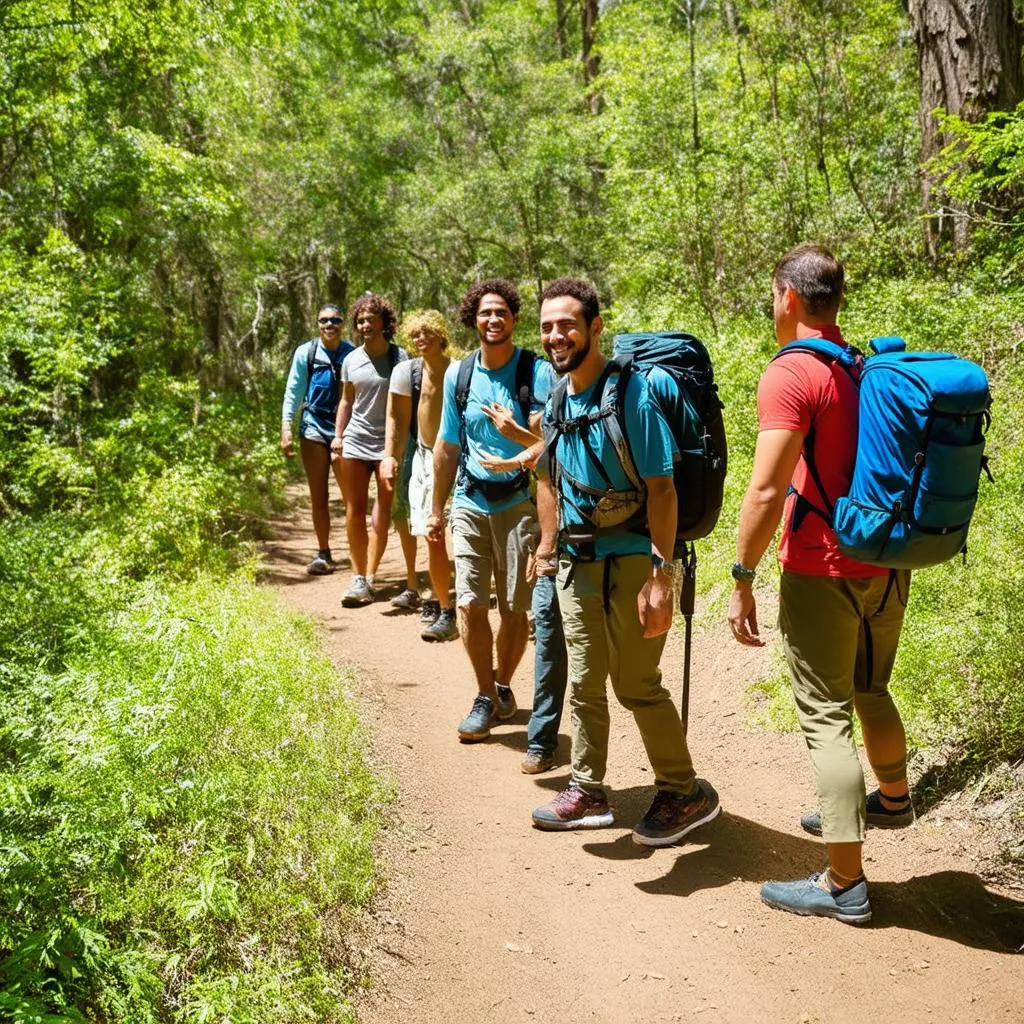Have you ever dreamt of exploring pristine rainforests, coming face-to-face with exotic wildlife, or immersing yourself in vibrant local cultures, all while leaving a minimal footprint on the environment? That, my friends, is the essence of ecotourism.
Defining Ecotourism
Ecotourism, often called sustainable tourism, is a responsible way to travel to natural areas, conserving the environment, and improving the well-being of local people. It’s about experiencing the wonders of our planet in a way that minimizes negative impacts and maximizes positive contributions.
Key Principles of Ecotourism
- Conservation: Ecotourism aims to protect and preserve natural environments and biodiversity. Think minimizing waste, conserving water, and supporting initiatives that protect ecosystems.
- Community Empowerment: Ecotourism strives to benefit local communities by creating sustainable livelihood opportunities, respecting their cultures and traditions, and involving them in tourism management.
- Education: Ecotourism aims to educate travelers about the importance of conservation, cultural understanding, and responsible travel practices.
- Minimal Impact: Ecotourism emphasizes minimizing the negative impact on the environment and local communities through practices like using eco-friendly accommodations and transportation.
 Ecotourists Hiking in Forest
Ecotourists Hiking in Forest
Why Choose Ecotourism?
- Protect Our Planet: By choosing eco-friendly options, you directly contribute to the preservation of fragile ecosystems for future generations.
- Experience Authentic Cultures: Ecotourism often involves engaging with local communities, experiencing their traditions, and supporting their livelihoods.
- Connect with Nature: Immerse yourself in the beauty of nature, from breathtaking landscapes to encounters with wildlife in their natural habitat.
- Make a Difference: Every sustainable choice you make, no matter how small, contributes to a larger positive impact.
Planning Your Ecotourism Adventure
- Choose a Destination: Research destinations known for their commitment to sustainable tourism. For example, Costa Rica is renowned for its eco-lodges and conservation efforts.
- Select Responsible Tour Operators: Look for tour operators certified by reputable organizations like The International Ecotourism Society (TIES) or Rainforest Alliance.
- Pack Light and Eco-Friendly: Opt for reusable water bottles, eco-friendly toiletries, and minimize packaging.
- Respect Local Customs: Learn about local customs and traditions beforehand to ensure respectful interactions.
 Woman Planting Tree With Locals
Woman Planting Tree With Locals
Ecotourism: A Growing Trend
“Ecotourism is not just a trend; it’s a responsibility,” says Dr. Sarah Miller, author of “Sustainable Travel: A Guide to Meaningful Adventures.” She emphasizes, “Travelers are becoming more conscious of their impact, seeking experiences that align with their values.”
FAQs about Ecotourism
- What’s the difference between ecotourism and sustainable tourism? The terms are often used interchangeably. However, sustainable tourism is a broader concept encompassing all forms of responsible travel, while ecotourism focuses specifically on natural areas and conservation.
- Is ecotourism always expensive? Not necessarily! While some eco-lodges and tours can be pricey, many affordable options cater to budget-conscious travelers.
Conclusion
Ecotourism offers a chance to explore our world responsibly, leaving a positive impact on the environment and communities we visit. By making conscious choices, we can all become stewards of our planet, ensuring its beauty thrives for generations to come.
Explore eco-friendly travel options and learn more about responsible tourism at travelcar.edu.vn.